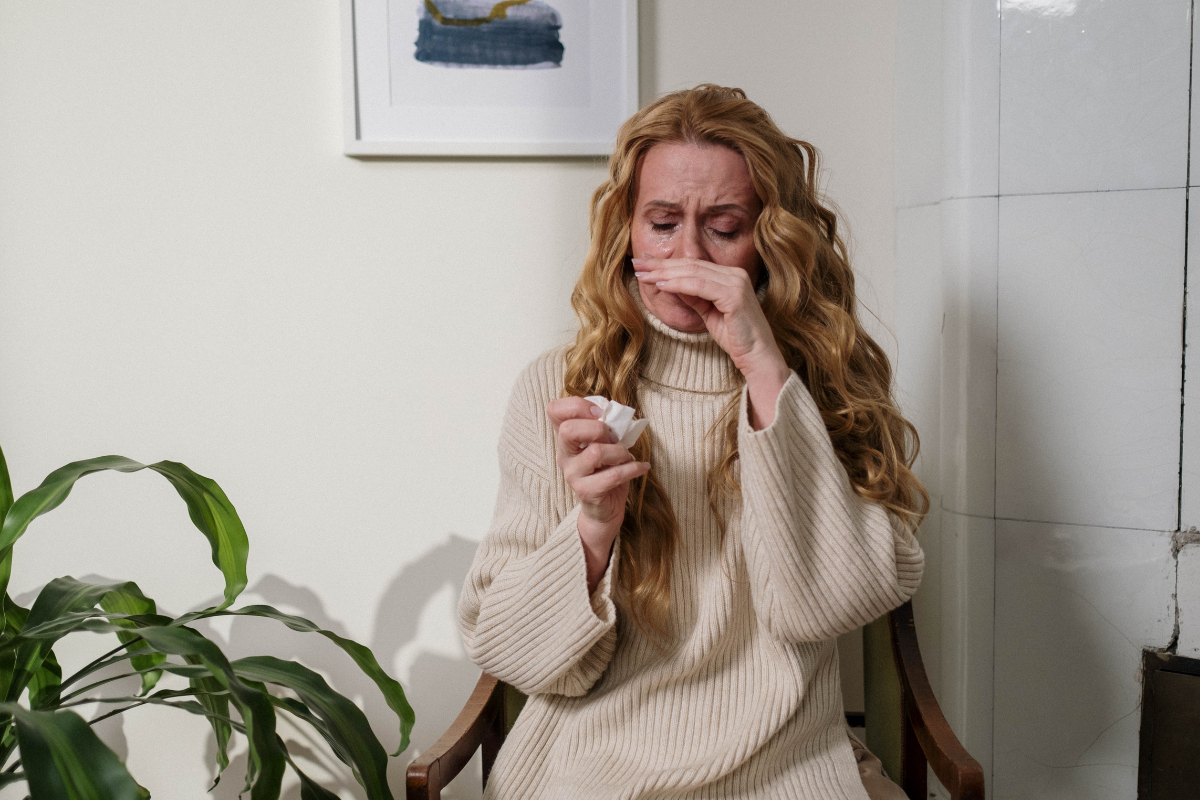If you suffer from allergies, nighttime can be a particularly frustrating experience. Despite controlling your environment, allergies can worsen when you go to bed, leading to discomfort like congestion, sneezing, itchy skin, and even poor sleep quality. Many people don’t realize that their bedding could be a major factor in aggravating these issues. Let’s dive into how your sheets could be contributing to your nighttime allergy struggles - and how switching to eucalyptus bedding could be the key to a more restful, allergy-free sleep.
The Link Between Bedding and Nighttime Allergies
It’s easy to overlook, but the materials you sleep on every night can play a significant role in your allergy symptoms. Common irritants such as dust mites, bacteria, mold, and pet dander tend to build up in your sheets and pillowcases. Here’s why your bedding might be contributing to your discomfort:
- Dust Mites: These microscopic creatures thrive in warm, humid environments—making your bed the perfect habitat. They feed on dead skin cells, which we shed throughout the night. Cotton sheets are particularly prone to dust mite infestations due to their absorbent nature.
- Bacteria and Mold: Cotton and other natural fabrics tend to absorb moisture from sweat, body oils, and humidity in the air. This creates an environment where mold and bacteria can thrive, exacerbating allergy symptoms and irritating the skin.
- Pet Dander: Even if you don’t have a pet, dander can accumulate in your sheets from other areas in your home, causing irritation, especially for sensitive sleepers.
These allergens can cause sneezing, itchy skin, congestion, and even worsen conditions like eczema and asthma, making it difficult to sleep comfortably at night.
How Eucalyptus Sheets Can Help Combat Allergies
Unlike traditional bedding materials, eucalyptus sheets offer a natural, hypoallergenic alternative that can help alleviate these issues. Here’s how:
- Naturally Hypoallergenic: Eucalyptus fabric is naturally resistant to dust mites, bacteria, and mold, making it a perfect choice for people with allergies. The smooth fibers do not trap dust and allergens like cotton does, reducing your exposure while you sleep.
- Breathable and Moisture-Wicking: Eucalyptus fibers are highly breathable, which means they don’t absorb moisture like cotton. This keeps your sheets drier and less hospitable to bacteria, mold, and dust mites. The moisture-wicking properties ensure that sweat and humidity don’t linger on your sheets, providing a cleaner, fresher sleep surface.
- Chemical-Free: Many traditional bedding fabrics, such as polyester, are treated with chemicals that can irritate sensitive skin and worsen allergies. Eucalyptus bedding is made using eco-friendly processes that do not require harmful chemicals, making it a better choice for allergy sufferers.
- Antibacterial Properties: Eucalyptus fabric naturally repels bacteria, which means it can help keep your sheets cleaner and reduce the buildup of harmful microorganisms that cause skin irritation and respiratory problems.
Creating an Allergy-Free Sleep Environment
In addition to switching to eucalyptus sheets, there are a few other steps you can take to create an allergy-friendly sleep space:
- Wash Sheets Regularly: Washing your sheets at least once a week in hot water can help remove dust mites, pet dander, and other allergens. Eucalyptus sheets are durable enough to withstand frequent washes without losing their softness or effectiveness.
-Use Allergen-Proof Pillow Protectors: Along with eucalyptus sheets, use allergen-proof pillow covers to reduce exposure to dust mites and other irritants. These protectors create a barrier between your pillow and the allergens that may be trapped inside.
- Maintain a Clean Bedroom: Vacuum your bedroom frequently, especially carpets and rugs, to remove allergens from the air. Consider using a HEPA filter in your bedroom to trap airborne allergens.
- Keep Humidity Levels Low: High humidity can encourage the growth of mold and dust mites. Consider using a dehumidifier in your bedroom to maintain a dry environment that reduces the likelihood of allergens thriving in your sheets.
Why Eucalyptus Bedding is Worth the Investment
If allergies are affecting your sleep, switching to eucalyptus bedding can be a game-changer. Not only does it provide a cleaner, hygienic sleep environment, but its naturally hypoallergenic properties will help improve your quality of sleep. No more waking up with a stuffy nose or itchy skin - eucalyptus sheets are a great choice for anyone looking to reduce their exposure to allergens.
Additionally, eucalyptus sheets are soft, breathable, and cooling, making them ideal for anyone who suffers from hot flashes or night sweats, adding an extra layer of comfort to your allergy-free environment.
Final Thoughts: Sleep Tight, Allergy-Free
Nighttime allergies don’t have to disrupt your sleep. By recognizing the role your bedding plays in your allergy symptoms and making the switch to eucalyptus sheets, you can create a healthier, more comfortable sleep environment. Eucalyptus bedding not only helps reduce allergens but also offers numerous other benefits, including a cooler and more breathable sleep.
So, if you’re tired of suffering through sleepless nights due to allergies, consider upgrading to eucalyptus sheets for a cleaner, more allergy-free sleep.




Share:
Eucalyptus Silk vs Cotton Pillowcases - Hair & Skin Benefits
Choosing The Best Comforter For Allergies (Bamboo vs Feather)